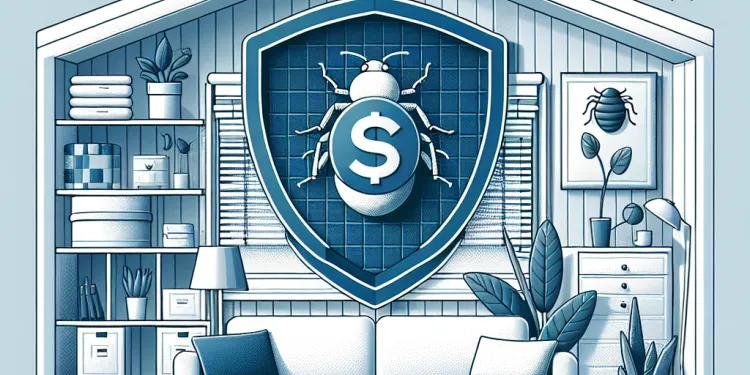
Find Help
More Items From Ergsy search
-

How can I prevent bringing bed bugs into my home?
Relevance: 100%
-

How do bed bugs enter my home?
Relevance: 96%
-

Bed Bugs / bedbugs
Relevance: 89%
-
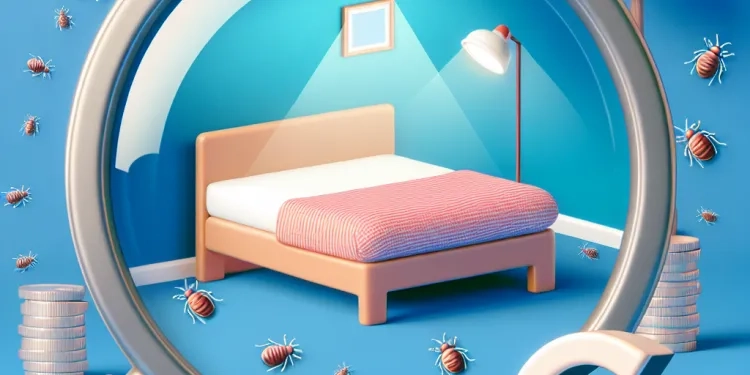
Do bed bugs only live in beds?
Relevance: 88%
-
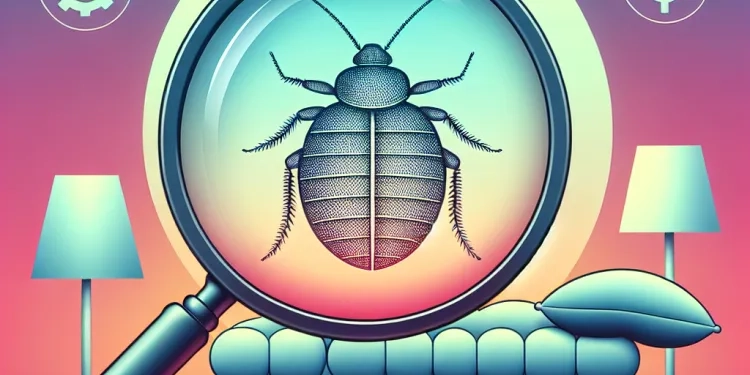
What are bed bugs?
Relevance: 87%
-
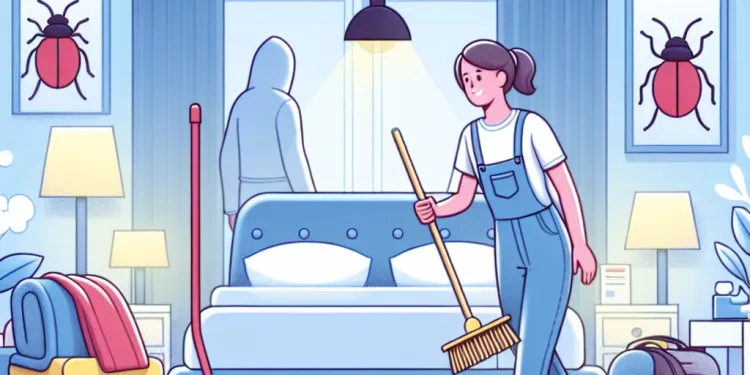
Are bed bugs dangerous?
Relevance: 83%
-
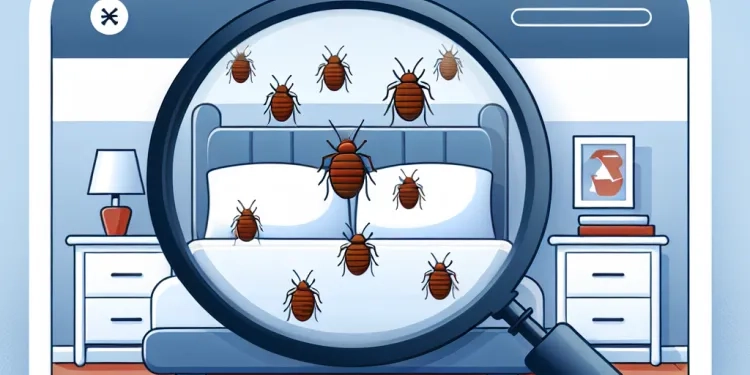
What are the signs of a bed bug infestation?
Relevance: 82%
-

Will disposing of my mattress get rid of bed bugs?
Relevance: 79%
-
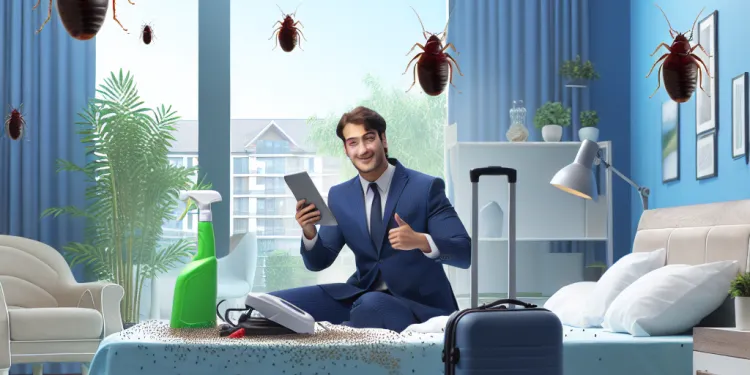
What should I do if I find bed bugs in my house?
Relevance: 79%
-

Why are bed bugs so difficult to eliminate?
Relevance: 79%
-
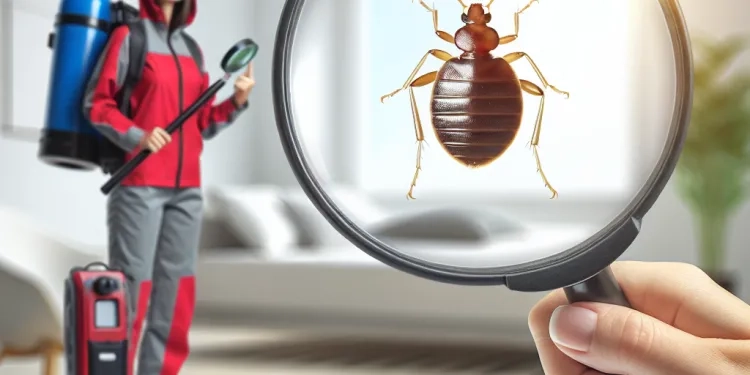
Can I get rid of bed bugs myself?
Relevance: 76%
-
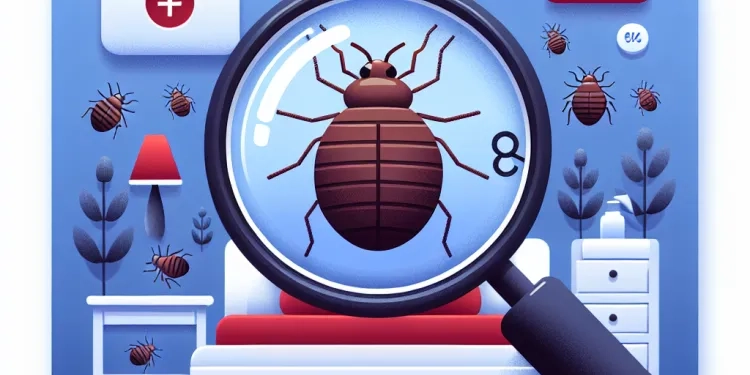
How can I tell if bites are from bed bugs?
Relevance: 76%
-
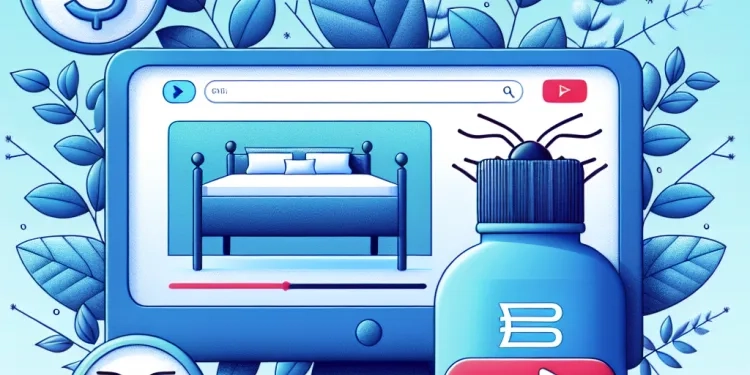
Are there any natural remedies for bed bugs?
Relevance: 76%
-

What items should I wash if I have bed bugs?
Relevance: 72%
-
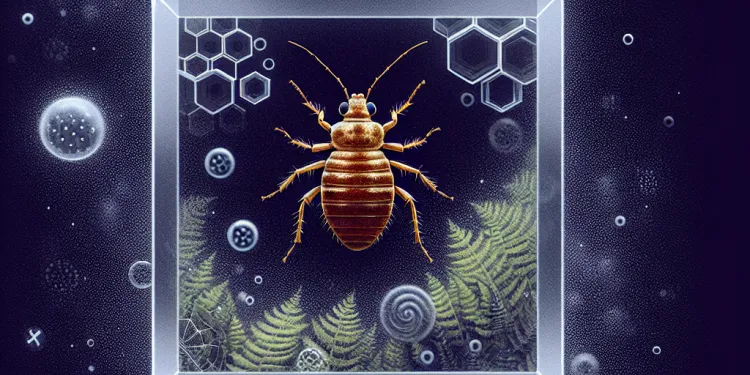
How much does professional bed bug extermination cost in the UK?
Relevance: 71%
-
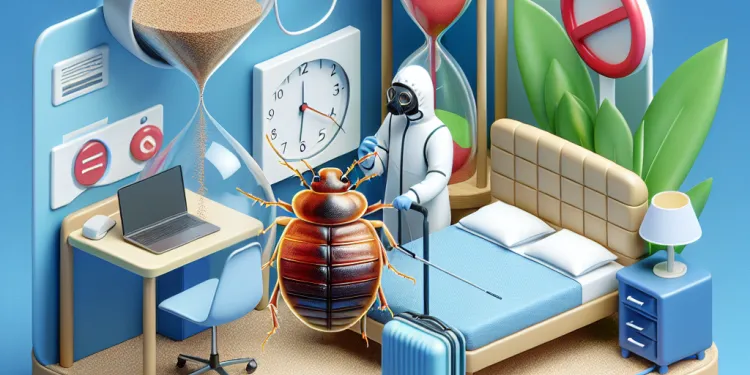
How long does a bed bug extermination process take?
Relevance: 68%
-
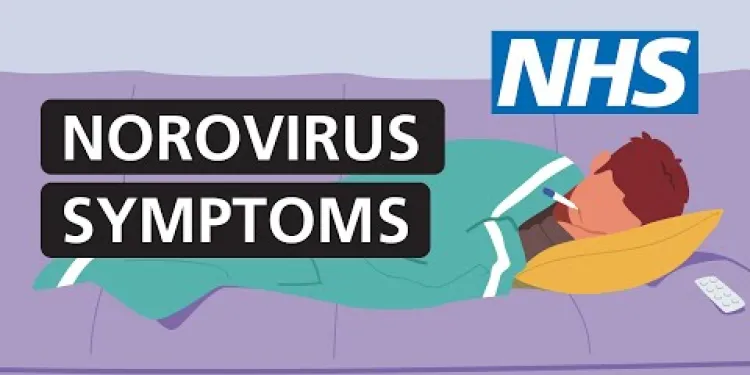
What is norovirus? (Diarrhoea and vomiting bug) | NHS
Relevance: 41%
-
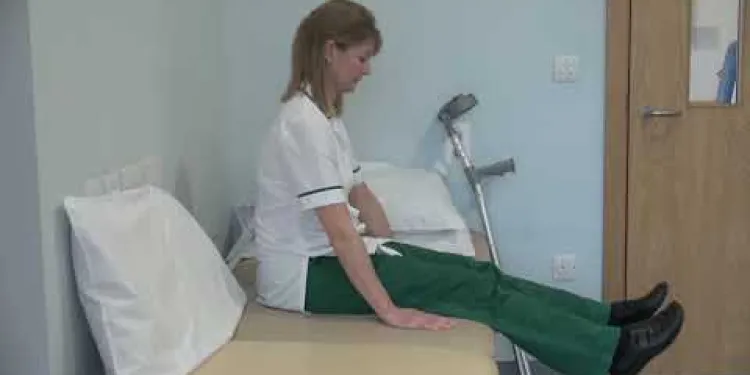
Hip replacement - getting into bed
Relevance: 36%
-
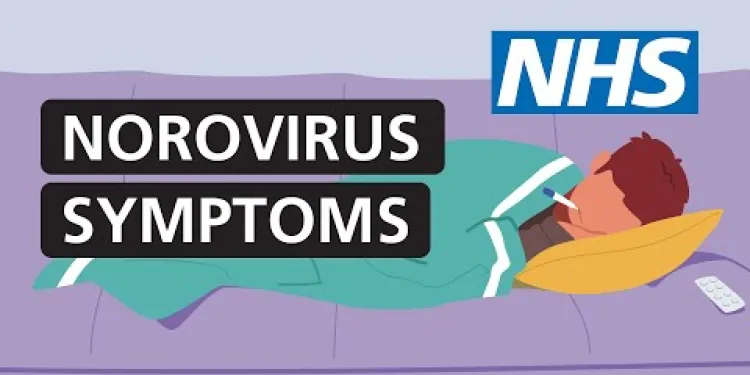
What is norovirus? (Diarrhoea and vomiting bug) | NHS
Relevance: 35%
-
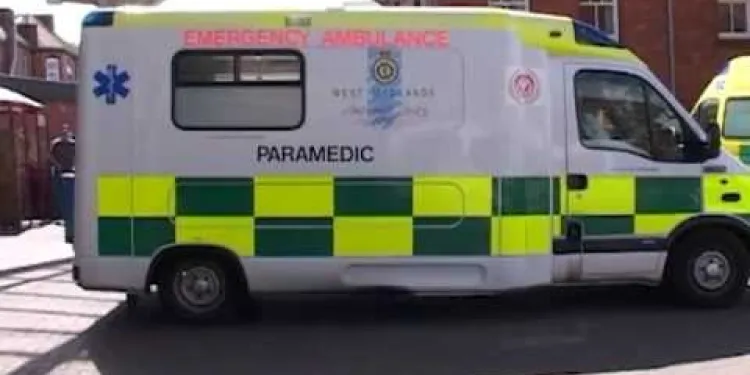
MRSA Bug
Relevance: 34%
-
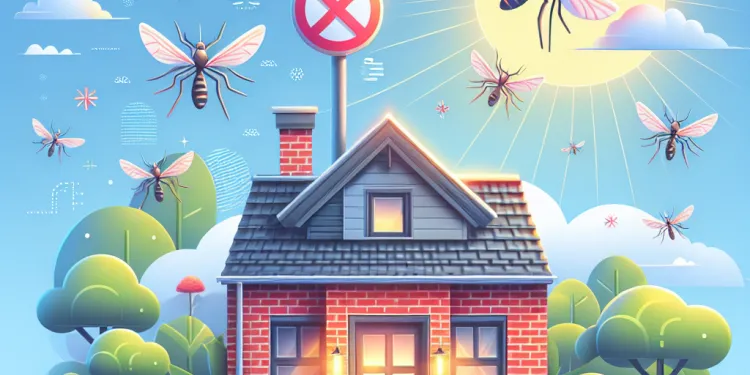
How can I prevent mosquitoes from breeding near my home?
Relevance: 30%
-

What steps can be taken to prevent scabies?
Relevance: 29%
-

Fire Safety At Home
Relevance: 29%
-

How does screen time before bed specifically affect adolescents?
Relevance: 28%
-

How can I prevent the spread of impetigo?
Relevance: 26%
-
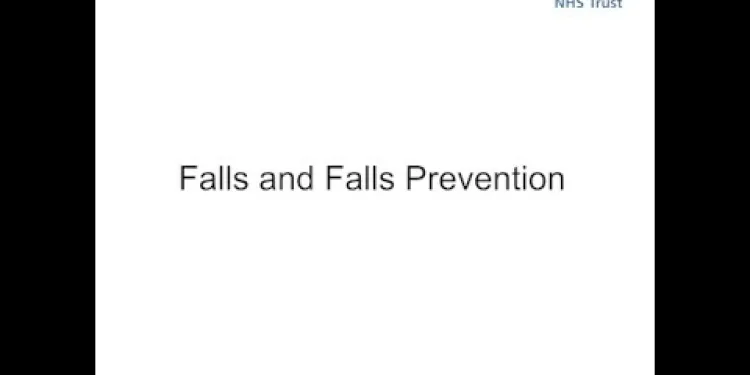
Falls and Falls Prevention
Relevance: 25%
-
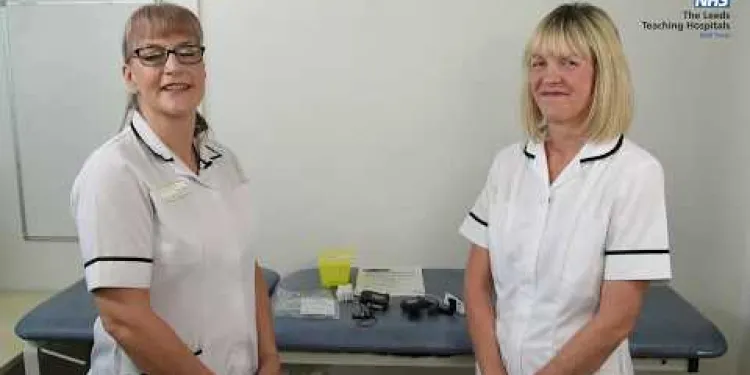
Instructions for setting up your home sleep study
Relevance: 24%
-

How are care homes different from nursing homes?
Relevance: 24%
-

Can hay fever be prevented?
Relevance: 24%
-

Building a Healthy Home Environment
Relevance: 23%
-

What are Care Homes?
Relevance: 23%
-
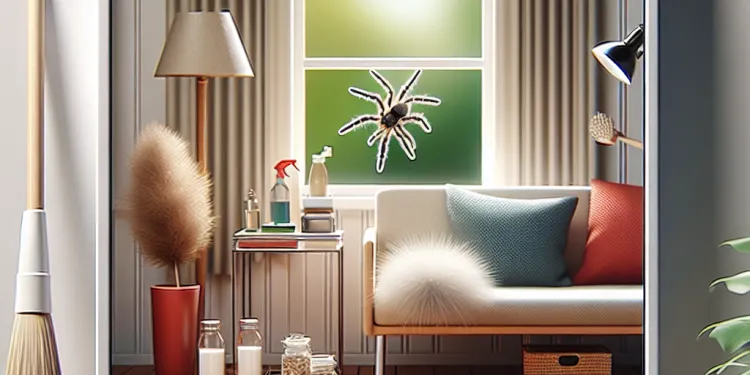
What should I do if I find a spider in my home?
Relevance: 23%
-

Are there home remedies for psoriasis?
Relevance: 23%
-

Falls Prevention Podcast
Relevance: 23%
-

Can residents personalize their living space in a care home?
Relevance: 23%
-

Is the Warm Home Discount a loan?
Relevance: 23%
-
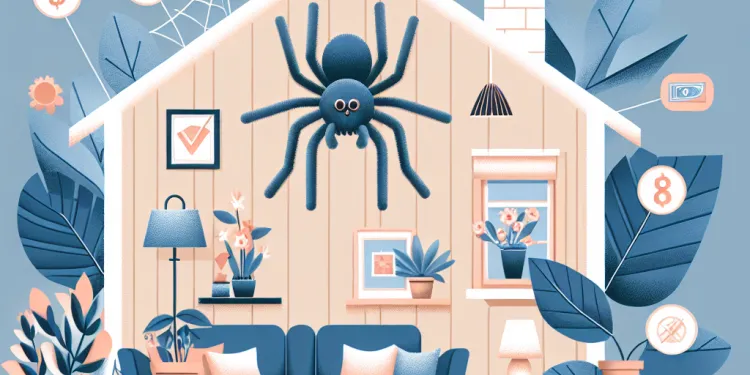
What are the benefits of having spiders in the home?
Relevance: 22%
-

How can asthma attacks be prevented?
Relevance: 22%
-

Can sunburn be prevented?
Relevance: 22%
-

Are there any home remedies for impetigo?
Relevance: 22%
Preventing Bed Bugs from Invading Your Home
Be Vigilant When Traveling
When travelling, inspect hotel rooms thoroughly before settling in. Check the mattress seams, bed frames, and headboards for any signs of bed bugs, such as small dark spots or blood stains. Keep your luggage elevated on luggage racks and avoid placing it on the bed or floor. After returning home, wash and dry your travel clothing at the highest heat setting to kill any potential hitchhikers.
Inspect Second-hand Furniture
Before bringing second-hand furniture or clothing into your home, inspect each item carefully. Use a magnifying glass and flashlight to search for signs of bed bugs in the seams, crevices, and under cushions. Avoid picking up any discarded furniture on the street, as these can be heavily infested with bed bugs.
Seal Entry Points
To minimize the risk of bed bugs entering your home, seal any cracks or crevices in walls, baseboards, and mouldings. Use caulk or sealant to close off these entry points. Check that window screens are intact and that doors shut tightly when closed. This step also helps prevent other pests from entering your home.
Be Cautious with Guests
When hosting overnight guests, be cautious about where they place their luggage. Encourage them to keep their belongings in a designated area away from bedrooms. After their departure, thoroughly wash any linens and clean the accommodations to ensure no bed bugs have been left behind.
Regular Home Maintenance
Routine cleaning and decluttering can help prevent bed bugs. Vacuum your home regularly, focusing especially on areas like beds, seats, and carpets. Dispose of the vacuum bag immediately since it could contain live bed bugs. Decluttering your home makes it easier to spot infestations early and reduces hiding spots for bed bugs.
Monitor for Signs of Infestation
Be attentive to signs of a potential bed bug problem, including bites on your skin that occur overnight, or small blood stains on your sheets. Early detection is crucial in preventing a full-blown infestation, which can be costly and difficult to eradicate.
Stop Bed Bugs from Coming into Your Home
Be Careful When You Travel
When you travel, check your hotel room before unpacking. Look at the edges of the mattress, bed frames, and headboards for signs of bed bugs. These signs can be dark spots or little blood stains. Keep your bags on luggage stands, not on the bed or floor. When you get home, wash your travel clothes on high heat to kill any bugs.
Check Used Furniture
Before you bring used furniture or clothing into your home, check everything carefully. Use a magnifying glass and a flashlight to look for bed bugs in the seams and under cushions. Do not pick up furniture from the street because it might have bed bugs.
Close Off Entry Points
To keep bed bugs from coming into your home, seal cracks in walls and gaps near baseboards. Use caulk or sealant for this. Check that window screens have no holes and that doors close tightly. This also keeps other pests out.
Be Careful with Visitors
When you have guests staying over, ask them to put their bags in a spot away from bedrooms. After they leave, wash any sheets and clean the room to make sure no bed bugs are left behind.
Keep Your Home Clean
Clean your home regularly to prevent bed bugs. Vacuum your home often, especially beds, chairs, and carpets. Throw away the vacuum bag right away since it might have bed bugs. Keeping your home tidy makes it easier to find and stop bed bugs.
Look for Bed Bug Signs
Watch out for signs of bed bugs, like bites that appear overnight or small blood spots on sheets. Finding them early can stop a big problem that is hard and expensive to fix.
Frequently Asked Questions
What are the first signs of bed bugs in the home?
The first signs of bed bugs often include small, itchy bites on the skin, especially after sleeping. You may also notice dark spots or shed skins on your bedding or mattress seams.
How do bed bugs typically enter a home?
Bed bugs commonly enter homes by hitchhiking on luggage, clothing, or used furniture. They can also move between flats and terraced houses.
What precautions should I take when travelling to prevent bed bugs?
When travelling, inspect hotel rooms for signs of bed bugs, keep luggage off the floor and beds, and check your belongings before leaving. Consider using a protective cover for your suitcase.
How can I inspect used furniture for bed bugs before bringing it home?
Examine used furniture carefully for signs of bed bugs, including mattress seams, upholstery, and any crevices or corners. Use a torch to inspect for tiny, dark spots or live bugs.
Can bed bugs be found in public places?
Yes, bed bugs can be found in places with high foot traffic such as cinemas, public transport, and libraries. Always be cautious with personal items in these areas.
Should I use protective covers on my mattress and box spring?
Yes, using protective bed bug-proof covers on your mattress and box spring can help prevent bed bugs from establishing a home in your bed.
Is it helpful to install bed bug interceptors on my bed?
Yes, placing bed bug interceptors under bed legs can help catch bed bugs trying to climb up, thereby preventing them from reaching your bed while also indicating an infestation.
How often should I vacuum to help prevent bed bugs?
Regular vacuuming, especially along baseboards, under beds, and around bed legs, can help remove any hidden bed bugs and prevent an infestation.
What should I do with my clothes after visiting a place that might have bed bugs?
After visiting a potentially infested area, immediately wash your clothes in hot water and dry them on high heat. Vacuum luggage and inspect thoroughly before storing.
How effective are bed bug sprays and should I use them?
Bed bug sprays can be effective as a part of an integrated pest management approach. Always follow the label instructions and consider hiring a professional for severe infestations.
Can I get bed bugs from my pets?
Although bed bugs prefer human hosts, they may occasionally bite pets. Your pets can carry bed bugs if they contact an infested area, so it's essential to inspect pet bedding regularly.
Is it true that bed bugs are attracted to dirt and grime?
Bed bugs are not attracted to dirt and grime; they are attracted to warmth, carbon dioxide, and human blood. However, reducing clutter can help prevent them by limiting their hiding spots.
What are the legal responsibilities of UK landlords if bed bugs are found in a rental property?
In the UK, landlords are typically responsible for dealing with bed bug infestations, assuming the issue was not caused by the tenant's negligence. Tenants should report any infestations to their landlord promptly.
How do I tell if I have a bed bug infestation?
You may have a bed bug infestation if you notice bites, blood stains on sheets, or clusters of dark brown spots (bed bug faeces) in sleeping areas.
When should I contact a professional pest control service?
Contact a professional pest control service if you see signs of a bed bug infestation that you cannot control on your own, such as persistent bites, visible bugs, or widespread contamination.
What are the first signs of bed bugs at home?
Here are some easy-to-see clues that bed bugs might be in your home:
- Little red bites on your skin.
- Small dark spots on your bed sheets.
- Tiny bugs or eggs in the corners of your bed.
- A musty smell in the room.
If you see any of these clues, here is what you can do:
- Use a flashlight to check your mattress and sheets.
- Carefully wash and dry your bedding on high heat.
- Call an expert to help you get rid of the bugs.
Don't worry, help and support are available!
Bed bugs are tiny bugs that can bite you. You might see small, itchy spots on your skin when you wake up. Look for dark spots or tiny, dry bug shells on your sheets or mattress edges.
If you need help, ask someone to use a magnifying glass to check your bed or ask for help from a pest control expert to look at your home.
How do bed bugs get into a home?
Bed bugs are tiny bugs that like to hide. They often get into homes by:
- Climbing onto clothes, bags, or suitcases when people travel.
- Hiding in second-hand furniture or bedding.
- Coming from other rooms or apartments nearby.
If you want help reading, you can:
- Ask someone to read with you.
- Use a ruler or your finger to follow the words.
- Listen to an audio version of the text, if available.
Bed bugs can get into homes by hiding in bags, clothes, or old furniture. They can also move between apartments and houses that are joined together.
How can I stay safe from bed bugs when I travel?
When you go on a trip, look for bed bugs in the hotel room. Keep your bags off the floor and beds. Before you leave, check your things for bed bugs. You can also use a cover for your suitcase to keep it safe.
How can I check used furniture to make sure it does not have bed bugs before taking it home?
Follow these easy steps to check for bed bugs:
- Look closely at the seams and edges of the furniture. Bed bugs like to hide there.
- Check for small brown or red spots. These could be bed bug droppings.
- Use a flashlight to see better in dark areas.
- If you can, turn the furniture over to check underneath.
- Have a magnifying glass? It can help you see tiny bed bugs.
Ask a friend or family member to help if you find it tricky. They can support you to check carefully.
Check used furniture very carefully for bed bugs. Look at the edges of the mattress, the fabric, and in any small spaces or corners. Use a flashlight to look for tiny dark spots or live bugs.
Can you find bed bugs in places that many people go to?
Sometimes, tiny bugs called bed bugs can be in places where lots of people go. These places can be libraries, buses, or movie theaters. Bed bugs like to hide in small cracks and dark spots.
If you want help to check for bed bugs, you can use a flashlight to see better. You can also ask an adult to help you look carefully.
Yes, bed bugs can live in busy places like movie theaters, buses, trains, and libraries. Be careful with your things in these places.
Should I put covers on my bed and mattress?
It's a good idea to use covers on your bed and mattress. These covers help keep them clean and safe. They can stop dust and bugs from getting inside.
To help with this, you can use tools like a vacuum cleaner to remove dust from your bed. You can also wash bed covers to keep them fresh.
Yes, putting special covers on your bed can stop bed bugs from living there. These covers go on your mattress and box spring and keep the bugs out.
Should I put bed bug traps under my bed?
Bed bug traps can help stop bed bugs from crawling onto your bed. These traps are called interceptors.
The interceptors are small, and you put them under the legs of your bed. This can keep your bed safe from bugs.
These traps are easy to use. They can help you see if you have bed bugs. If you find bed bugs, you might need to use other ways to get rid of them.
If you are worried about bed bugs, you can ask an adult or a bug expert for help.
Yes, you can put special cups called bed bug interceptors under the legs of your bed. These cups trap bed bugs before they get to your bed. This helps to keep bed bugs away and shows if you have bed bugs in your home.
How often should I use a vacuum to stop bed bugs?
Vacuum your home a lot. Make sure to clean places like the edges of rooms, under your bed, and around the legs of your bed. This can help get rid of bed bugs and stop them from becoming a big problem.
What should I do with my clothes after going to a place that might have bed bugs?
If you think there might be bed bugs on your clothes, follow these steps:
- Put your clothes into a sealed plastic bag to keep the bugs from spreading.
- Wash your clothes with hot water. Bed bugs do not like hot water.
- Dry your clothes in the dryer on a hot setting. Heat helps get rid of bed bugs.
- If you need help, ask an adult or someone you trust.
Remember:
- Keep an eye on other things you took to the place, like your backpack.
- You can also use special sprays for bed bugs if you need more help.
When you go to a place that might have bugs, wash your clothes in hot water right away. Then, dry them using high heat. Check your bags carefully and vacuum them before you put them away.
Do bed bug sprays work and should I use them?
Bed bug sprays can kill bed bugs. But they do not always work well on all bugs.
Here are some tips to help you:
- Look for sprays that say they kill bed bugs.
- Follow the instructions on the spray bottle.
- You may need to spray more than once.
- Wash your bedding in hot water to help kill bugs.
- You can use a vacuum to clean up bed bugs, too.
For more help, you might want to call a pest control expert.
Bed bug sprays can help get rid of bed bugs. Make sure you read and follow the instructions. If there are lots of bed bugs, you might need to call an expert to help.
Can my pets give me bed bugs?
Bed bugs are little bugs that like to hide in beds and bite people.
They usually don’t live on pets like cats or dogs, but they can hide in their fur.
If you think you have bed bugs at home, you can:
- Check your bed and house for tiny bugs.
- Wash your pet's bedding often in hot water.
- Call a bug expert if you need help.
Bed bugs like to bite people, but sometimes they might bite your pets too. Pets can bring bed bugs home if they go to places that have bed bugs. It's a good idea to check your pet's bed often to make sure there are no bed bugs.
Do bed bugs like dirt and mess?
Bed bugs don't like dirt. They like warmth and the air we breathe out. They also like human blood. If you clean up messy stuff, it can help stop bed bugs because they won't have places to hide.
For help, you can try using simple checklists when cleaning. You can also ask someone to help you and make cleaning fun, like a game!
What must UK landlords do if there are bed bugs in a rental home?
In the UK, if you rent a home, the person who owns it is called a landlord. Usually, it is the landlord's job to fix problems with bed bugs, unless the problem happened because the person renting did something wrong. If you see bed bugs, tell your landlord quickly.
How can I know if I have bed bugs?
Here are some signs you might see if you have bed bugs:
- Small, itchy red marks on your skin.
- Tiny blood spots on your bed sheets.
- Tiny black spots that look like dirt.
- A weird sweet smell in your room.
If you think you have bed bugs, you can:
- Use a flashlight to look in the dark places, like under the bed.
- Call a bug expert for help.
- Wash your sheets and pillows in hot water.
You might have bed bugs if you see:
- Bites on your skin.
- Blood spots on your sheets.
- Clusters of tiny dark brown spots (this is bed bug poo) where you sleep.
If you are finding this hard to read, you can:
- Ask someone you trust to read it with you.
- Break the information into smaller bits.
When should I call a pest control expert?
If you see bugs or pests in your home, it might be time to get help.
- Call an expert if you have lots of pests.
- Call for help if the pests are making you sick.
- If the pests are damaging your home, it's time to call.
Using traps or sprays can help too. But an expert can really fix the problem.
If you see signs of bed bugs, and you can't get rid of them yourself, call a pest control expert. Signs to look for are bites that won't go away, seeing bugs, or bugs spreading everywhere.
Useful Links
This website offers general information and is not a substitute for professional advice.
Always seek guidance from qualified professionals.
If you have any medical concerns or need urgent help, contact a healthcare professional or emergency services immediately.
Some of this content was generated with AI assistance. We’ve done our best to keep it accurate, helpful, and human-friendly.
- Ergsy carfully checks the information in the videos we provide here.
- Videos shown by Youtube after a video has completed, have NOT been reviewed by ERGSY.
- To view, click the arrow in centre of video.
- Most of the videos you find here will have subtitles and/or closed captions available.
- You may need to turn these on, and choose your preferred language.
- Go to the video you'd like to watch.
- If closed captions (CC) are available, settings will be visible on the bottom right of the video player.
- To turn on Captions, click settings .
- To turn off Captions, click settings again.
More Items From Ergsy search
-

How can I prevent bringing bed bugs into my home?
Relevance: 100%
-

How do bed bugs enter my home?
Relevance: 96%
-

Bed Bugs / bedbugs
Relevance: 89%
-

Do bed bugs only live in beds?
Relevance: 88%
-

What are bed bugs?
Relevance: 87%
-

Are bed bugs dangerous?
Relevance: 83%
-

What are the signs of a bed bug infestation?
Relevance: 82%
-

Will disposing of my mattress get rid of bed bugs?
Relevance: 79%
-

What should I do if I find bed bugs in my house?
Relevance: 79%
-

Why are bed bugs so difficult to eliminate?
Relevance: 79%
-

Can I get rid of bed bugs myself?
Relevance: 76%
-

How can I tell if bites are from bed bugs?
Relevance: 76%
-

Are there any natural remedies for bed bugs?
Relevance: 76%
-

What items should I wash if I have bed bugs?
Relevance: 72%
-

How much does professional bed bug extermination cost in the UK?
Relevance: 71%
-

How long does a bed bug extermination process take?
Relevance: 68%
-

What is norovirus? (Diarrhoea and vomiting bug) | NHS
Relevance: 41%
-

Hip replacement - getting into bed
Relevance: 36%
-

What is norovirus? (Diarrhoea and vomiting bug) | NHS
Relevance: 35%
-

MRSA Bug
Relevance: 34%
-

How can I prevent mosquitoes from breeding near my home?
Relevance: 30%
-

What steps can be taken to prevent scabies?
Relevance: 29%
-

Fire Safety At Home
Relevance: 29%
-

How does screen time before bed specifically affect adolescents?
Relevance: 28%
-

How can I prevent the spread of impetigo?
Relevance: 26%
-

Falls and Falls Prevention
Relevance: 25%
-

Instructions for setting up your home sleep study
Relevance: 24%
-

How are care homes different from nursing homes?
Relevance: 24%
-

Can hay fever be prevented?
Relevance: 24%
-

Building a Healthy Home Environment
Relevance: 23%
-

What are Care Homes?
Relevance: 23%
-

What should I do if I find a spider in my home?
Relevance: 23%
-

Are there home remedies for psoriasis?
Relevance: 23%
-

Falls Prevention Podcast
Relevance: 23%
-

Can residents personalize their living space in a care home?
Relevance: 23%
-

Is the Warm Home Discount a loan?
Relevance: 23%
-

What are the benefits of having spiders in the home?
Relevance: 22%
-

How can asthma attacks be prevented?
Relevance: 22%
-

Can sunburn be prevented?
Relevance: 22%
-

Are there any home remedies for impetigo?
Relevance: 22%


